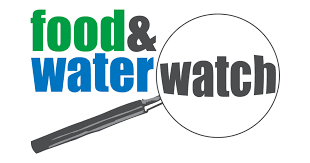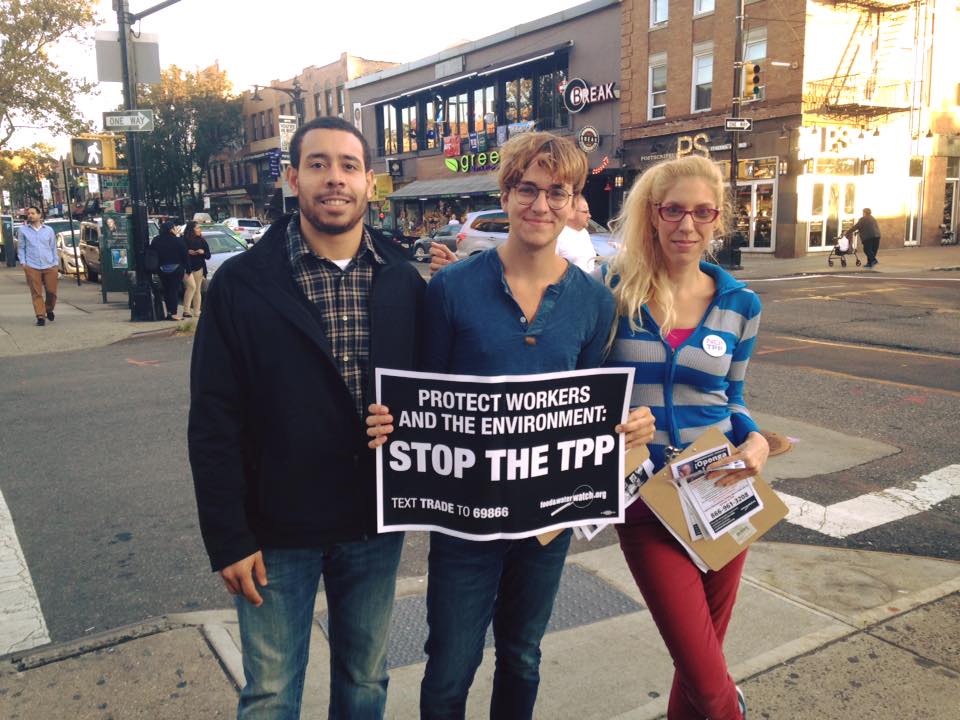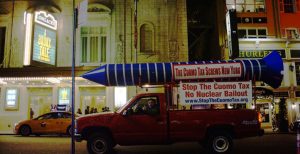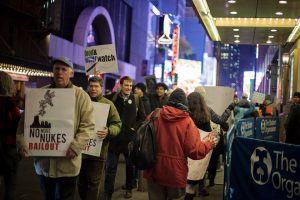Before entering my internship with the Food & Water Watch (FWW) I was unsure exactly of what an organizer position consisted of. I have always considered myself somewhat organized, so I was interested in seeing if my organizing skills honed from years of academia were transferable to this line of work. FWW is located in a bustling downtown Brooklyn and it was a month before the election, so I was eager to hit the ground running.

During my time with the FWW as an organizing intern I was introduced to several grassroots outreach tactics and campaign strategies that are used to influence elected officials, galvanize participation and organize events. This organizing position was beneficial as it exposed me to the behind-the-scenes development of events and campaigns that make a difference in terms of raising public awareness and applying political pressure.
FWW is a nonprofit environmental organization that operates to sustain and secure access to healthy food and clean water for all. Over the four-month span of my internship, the organization was active in challenging the Trans-Pacific Partnership, the Algonquin Incremental Market (AIM) pipeline, the Pilgrim pipelines, and an energy tax plan proposed by Governor Cuomo. Though these campaigns were variously successful, unsuccessful, or are ongoing, similar tactics were used in each to publicize the issues and to apply pressure on government officials.
A significant portion of this internship emphasized the importance of relationship building, not only with other environmental groups, but also with religious and justice-focused groups. In tandem with group relationship building, I spent a large fraction of my time reaching out to both new and old volunteers. One huge takeaway for me was the effort and importance focused on encouraging volunteers to take action and empowering them. I was able to develop personal relationships with volunteers as I often contacted them for events or actions and followed up with them after events to hear their opinions and suggestions.

Individual practices we used to draw attention to issues were placing personal outreach phone calls to those who expressed participatory interest, frequent petitioning, and composing letters to send to newspaper editors. Luckily, I had two letters-to the-editor published in Brooklyn Newspapers during my internship.
I also participated in larger actions, such as organizing rallies, while with Food & Water Watch. One rally tactic I was introduced to is known as “bird-dogging.” “Bird-dogging” is an act to raise awareness on an issue where an elected official is known to be.

Another important aspect I learned behind organizing events is to develop a concise request. Fortunately, I was able to participate in strategic planning meetings that focused on the rationale behind our rallies and demonstrations.
Although the core campaigns led by FWW’s New York Chapter were proximate to NY, we did also spend time assisting different chapters and organizations with their campaigns by phone banking and taking part in their rallies.

I was also given the opportunity to represent the FWW at several meetings that organizing staff members were unable to attend. It was beneficial to meet with activists from organizations with different missions and goals, and doing so allowed me to better understand how to interact with groups maintaining different priorities. The communication skills I learned at Bard’s Center For Environmental Policy prepared me to for these encounters by teaching me to tailor climate and environmental issues to my specific audiences. Issue framing was also an important skill that was helpful during my many petition excursions. In-depth knowledge of environmental issues and the science behind the issues was particularly helpful when I encountered naysayers at rallies or while petitioning. Additionally, it was extremely useful to be able to modify my tone when speaking to with people of different levels of expertise on environmental issues.
This internship strengthened my understanding and appreciation for the hard work and effort required to be an activist. Overall, Bard’s Center For Environmental Policy provided me with the environmental foundation that made transitioning into this line of work easier.
